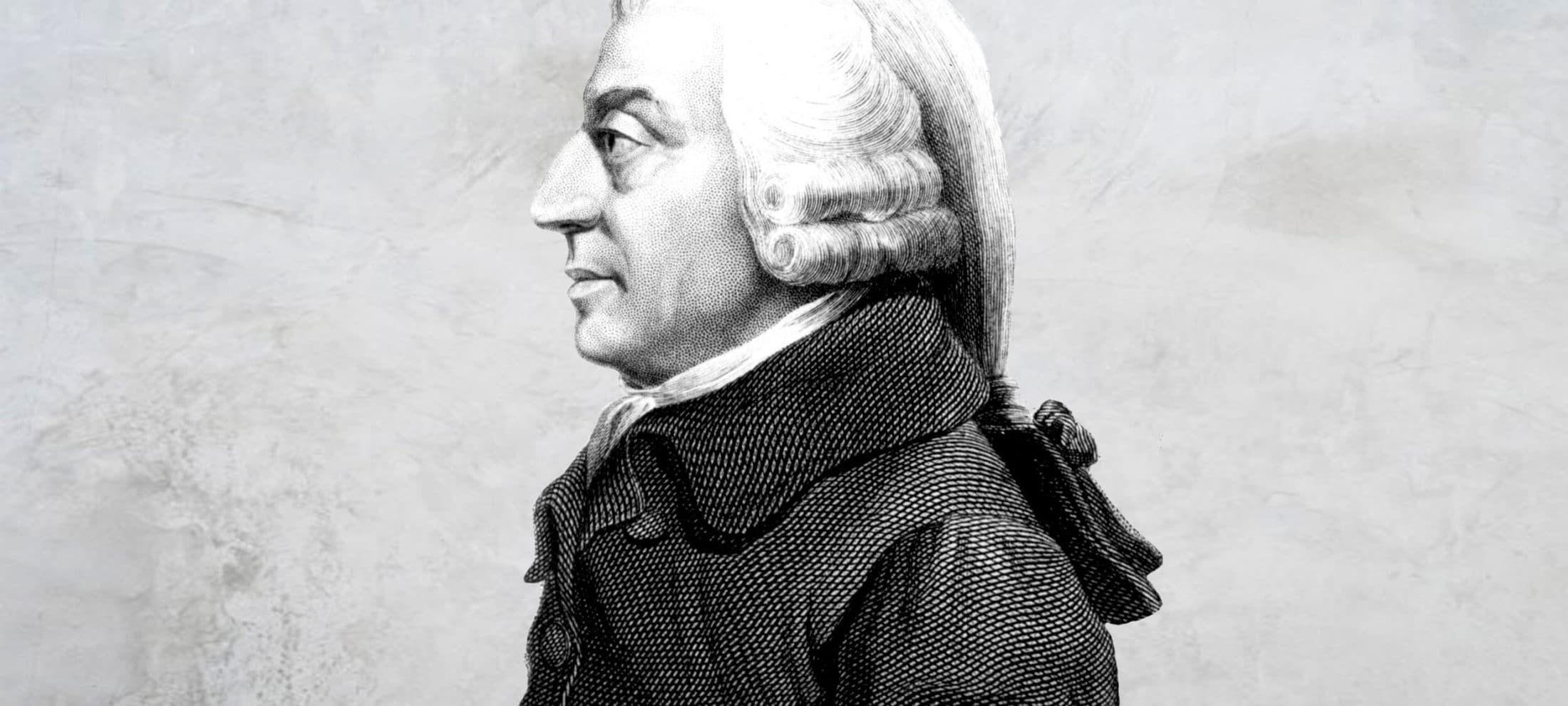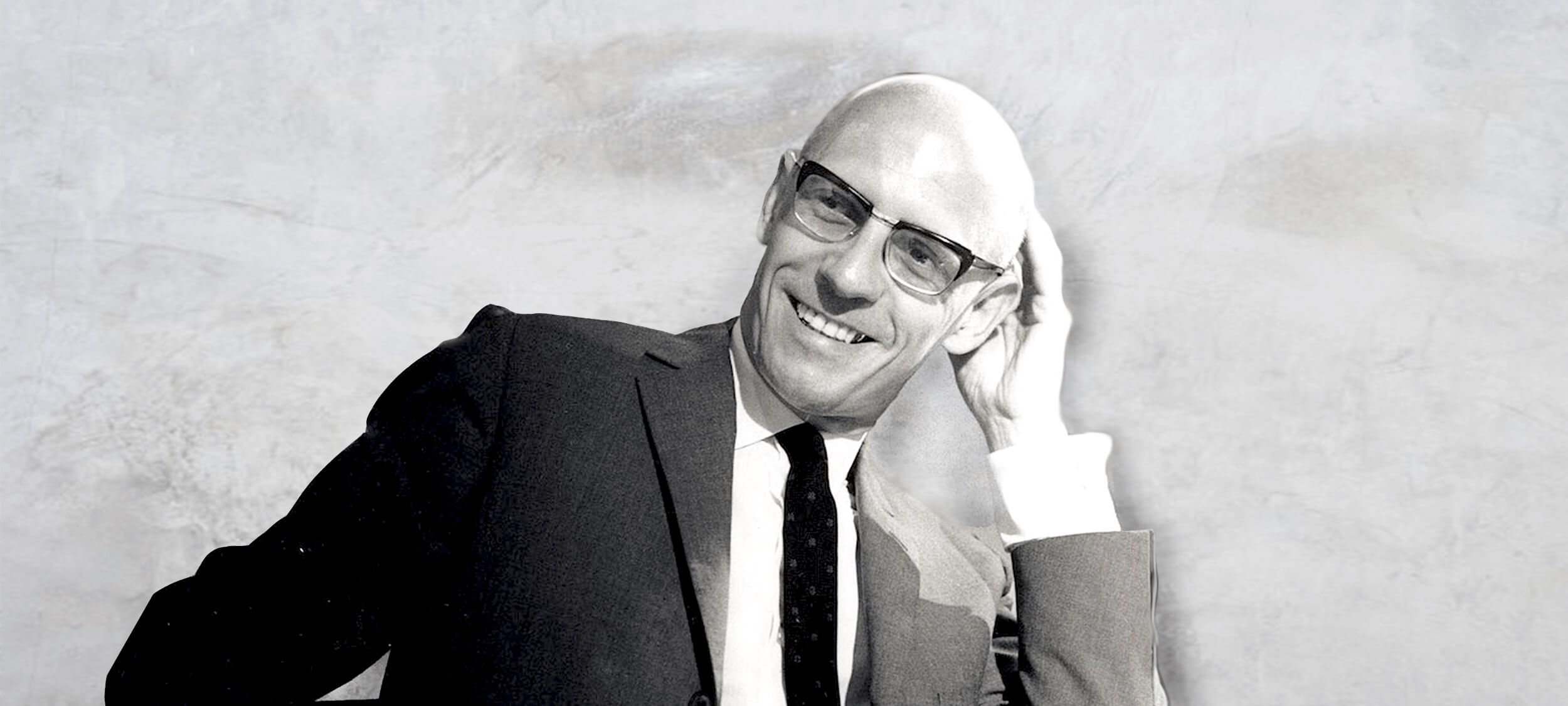
Big Thinker: Adam Smith
Big thinkerPolitics + Human RightsRelationships
BY The Ethics Centre 26 SEP 2018
It’s no exaggeration to say the ideas of Scottish moral philosopher Adam Smith (1723—1790) have shaped the world we live in.
By providing the core intellectual framework in defence of free markets, he positioned human liberty and dignity at the centre of trade and money – all for the common good.
Adam Smith, the pioneer
In the 18thcentury, the race to colonise as many resource rich places as possible meant powerful countries were often at war. Companies which added to the wealth of empires were protected by grateful governments, creating trade monopolies that seemed impossible to dismantle. This was the heyday of mercantilism.
Smith noticed how these actions created concentrations of wealth, benefiting the wealthy while the labour class struggled to survive. His first book, The Theory of Moral Sentiments, argued that the virtues of sympathy and reciprocity could tame greed.
His second, The Wealth of Nations, was about promoting a new way of approaching wealth that was as lucrative as it was just. The approach Smith adopted was multifaceted: economic, defensive, legal, and moral.
Smith argued that countries were competing for the wrong thing. Wealth wasn’t to be found in commodities like gold and silver. It resided in human labour and ingenuity. Smith encouraged countries that would normally look externally for wealth, suppressing the labour class and enslaving others, to look internally instead.
If the labour class could have the freedom to pick their job, all the while knowing the government would leave the money they made well alone, why wouldn’t they work hard at it? They would produce goods and services of even higher quality, and the government could buy these and trade them with each other. Everyone wins.
Collaboration would mean countries wouldn’t need to waste money on defence and war. They could save and accumulate capital, and invest that into better machinery, freeing people to work more productively. The labour class would grow richer, and so would the nation.
Smith stressed that in order for a free market to ensure fair pay for fair work, contracts had to be honoured, people had to keep their word, and governments mustn’t get into debt or take people’s property. Theft, negligence, mistakes, or irresponsible government spending must to be managed by the rule of law. And in the case of foreign powers, defence.
Thus, for Smith – a free market must rest on a sound ethical foundation. Given this, he argued for moral education of a kind that would lead people to be honourable and behave justly. This included the rich. Smith thought that an appeal to ‘enlightened’ self-interest might lead them to act honourably. By lavishing praise, accolades, and rewards on those who spend their wealth in charity, the rich gain the status and rank they really desire.
Adam Smith, the legacy
Claims of plagiarism, usury, inconsistency, racism, and all else aside, the major complaint directed towards Smith is his concept of the “invisible hand”. His observation that self-interested individuals end up benefiting the common good – that they are “led by an invisible hand to promote an end that was no part of his intention.” – has prompted some critics to label him naïve, idealistic, or even immoral.
The following quotation (misattributed to John Maynard Keynes) sums it up: “Capitalism is the astounding belief that the wickedest of men will do the wickedest of things for the greatest good of everyone”. But that plays into the Smith = laissez-faire trap, and ignores the safeguards he proposed against human corruption.
Smith did not think greed was good, saying this removed “the distinction between vice and virtue”, nor did he believe business interests and the public interest necessarily coincide. Instead, his perspective was that market competition forced people to act in ways that benefited others, regardless of their intention. And when it failed to do that, an overarching authority should step in. For Smith, markets have no intrinsic value – they are merely tools for the betterment of life for all.
No doubt the world we live in now is vastly different to pre-Industrial Scotland. Mass media, the Internet, the textile industry, factory farms, surveillance, housing prices, offshore tax havens…much would have seemed strange and unfamiliar to Smith. But his work and legacy leave a lesson in economics, ethics, and politics – all the more prescient in a world where the more things change, the more they stay the same.
Follow The Ethics Centre on Twitter, Facebook, Instagram and LinkedIn.
Ethics in your inbox.
Get the latest inspiration, intelligence, events & more.
By signing up you agree to our privacy policy
You might be interested in…
Opinion + Analysis
Politics + Human Rights, Relationships
Do Australia’s adoption policies act in the best interests of children?
Opinion + Analysis
Relationships
Five steps to help you through a difficult decision
Big thinker
Politics + Human Rights, Relationships
Big Thinker: Michel Foucault
Opinion + Analysis
Health + Wellbeing, Relationships




